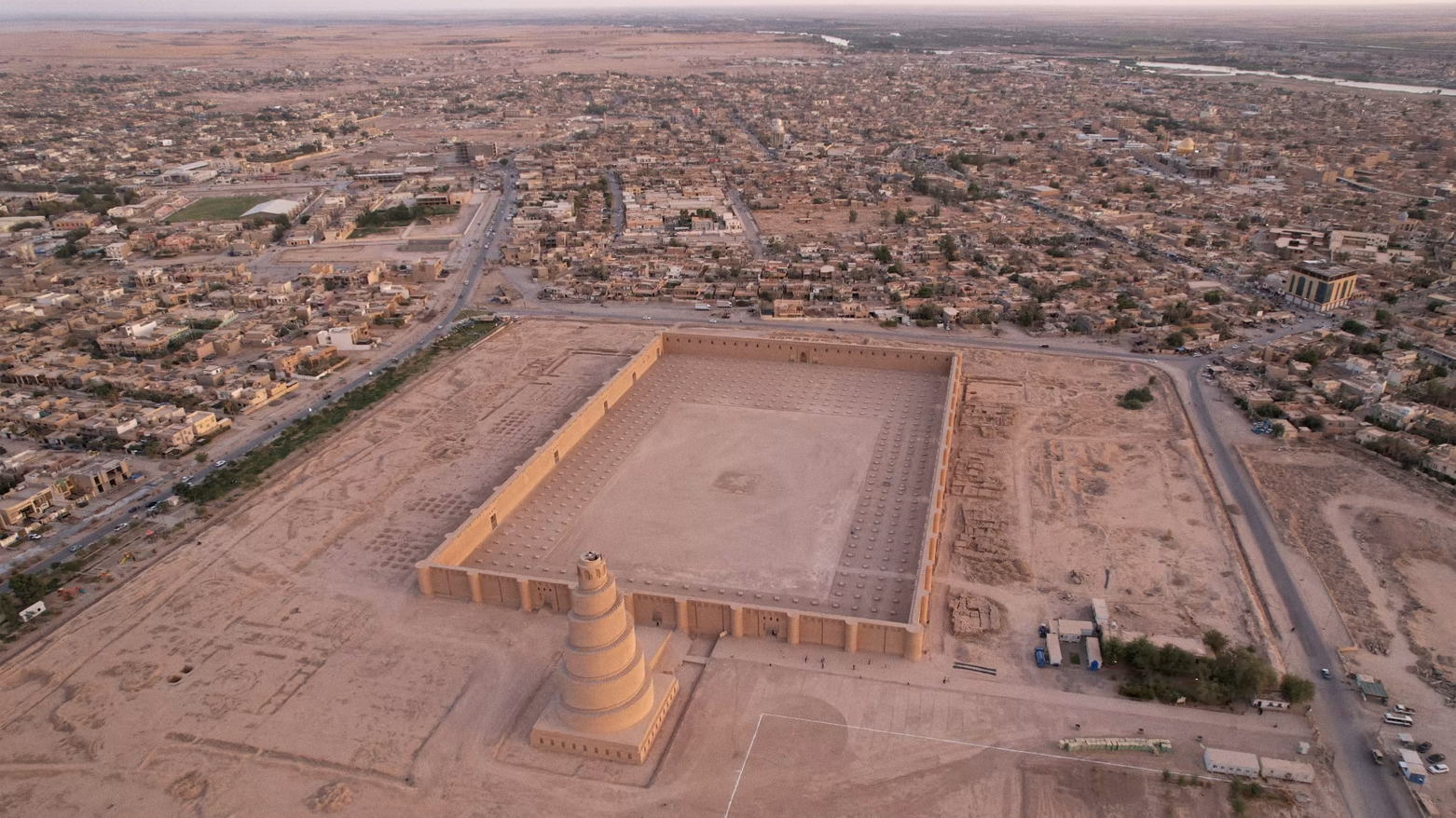Samarra Faces Severe Water Crisis
Residents south of Samarra face a severe water crisis despite living near the Tigris River. Dry canals, failed promises, and stalled projects have left communities without water for years, crippling agriculture and forcing families to spend their wages just to survive.

By Kamaran Aziz
ERBIL (Kurdistan24) – Residents in areas south of Samarra are enduring a severe water crisis despite their proximity to the Tigris River, with dried-up irrigation canals transforming into playgrounds for children in a poignant reflection of ongoing hardship.
On the outskirts of south Samarra, specifically at an irrigation canal branching from the Tigris River, there is no water—only the laughter of children whom the drought has turned into guardians of a hope that never arrives. Here, water no longer flows as it used to; it has vanished, turning the canal into a playground for the young, while the bitterness of waiting looms in the eyes of the adults—a wait with no end in sight.
A city resident told Kurdistan24, "We appeal to all Iraqi officials, the Prime Minister and the head of the Provincial Council. There is no water here. We work daily for a meager sum of 15,000 dinars, just to buy water for our homes. We are tired of this situation. We don't know if we are working for our livelihood or working to buy water.
"The Tigris River is not far away. Only a short distance separates them from its banks, but to the thirsty, that distance seems longer than can be crossed. Amid the whirring of this machine, work resumes on a water purification project—a project that has been stalled for years. It is now coming back to life, but slowly, as if powered more by people's hope than by the work itself.
Another resident told Kurdistan24, "We appeal to the Prime Minister and all concerned. We are an afflicted people in this region. There has been no water here for five years. We appealed to the provincial officials and they promised us a solution to the water problem, but years have passed and the issue has not been resolved. We don't even have water to wash with.
"The crisis here is not just a water shortage, but a crisis of life itself. Agriculture is breathing its last, green spaces are shrinking, and farmers are being forced to abandon their lands. In south Samarra, water has become like a dream—a dream that wanders between the banks of delayed promises.
The ongoing water crisis in south Samarra highlights a profound disconnect between available natural resources, such as the nearby Tigris River, and effective distribution systems, resulting in irrigation canals remaining dry for extended periods.
Residents' accounts reveal a five-year ordeal that has forced daily labor earnings to be redirected toward purchasing water, underscoring economic strain and fatigue among the population. The stalled water purification project, now slowly resuming, suggests potential for resolution but also exposes delays in infrastructure development that exacerbate the issue. Broader impacts include the decline of agriculture, reduction in green spaces, and land abandonment by farmers, transforming the crisis into a threat to livelihoods and community sustainability.
Appeals to Iraqi officials, including the Prime Minister and provincial leaders, indicate unfulfilled promises, pointing to governance challenges in addressing basic needs despite repeated commitments. This situation reflects a humanitarian challenge where water scarcity affects essential activities like washing and sustenance, turning proximity to a major river into an ironic symbol of unmet hopes and prolonged waiting.
Kurdistan24 correspondent Sajjad Hikmat from Samarra contributed to this report.
